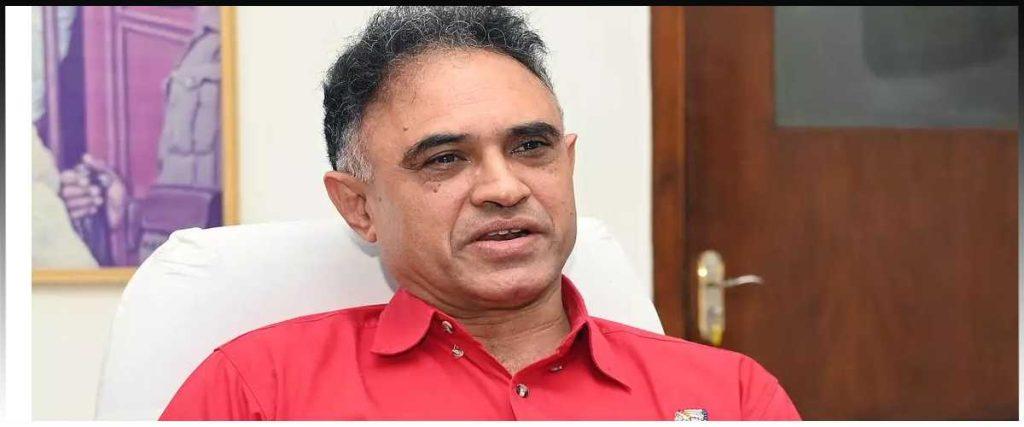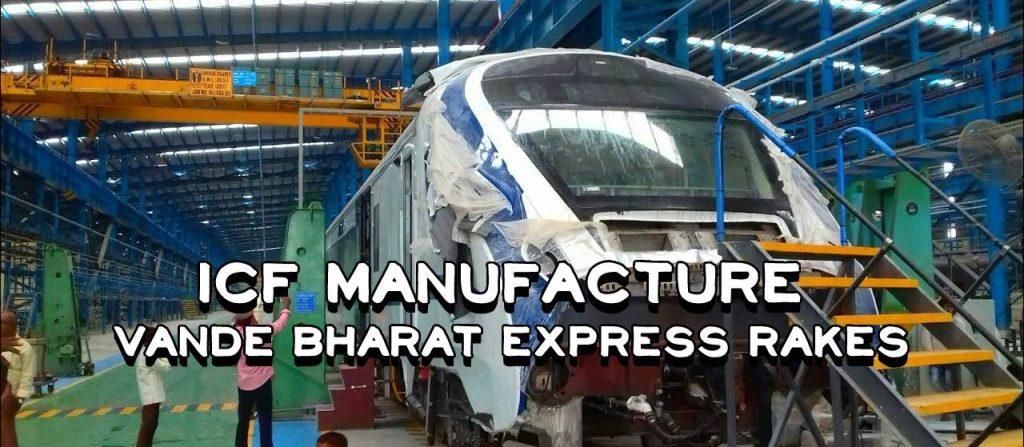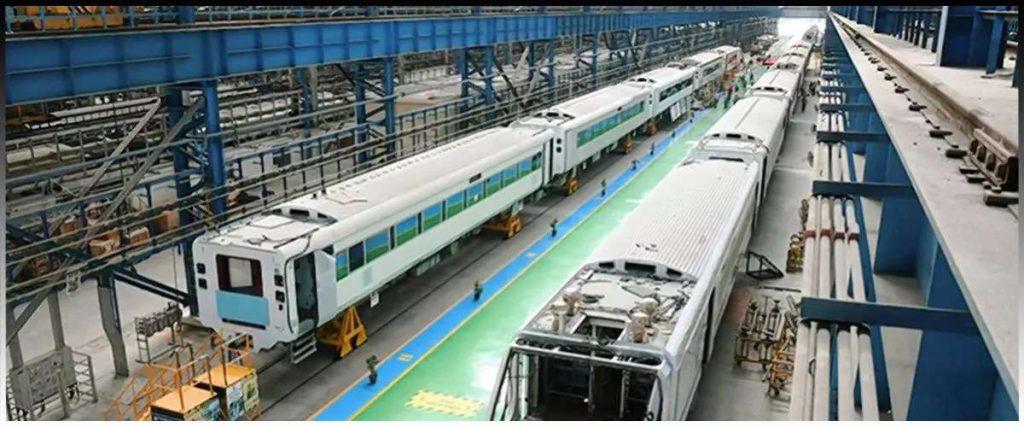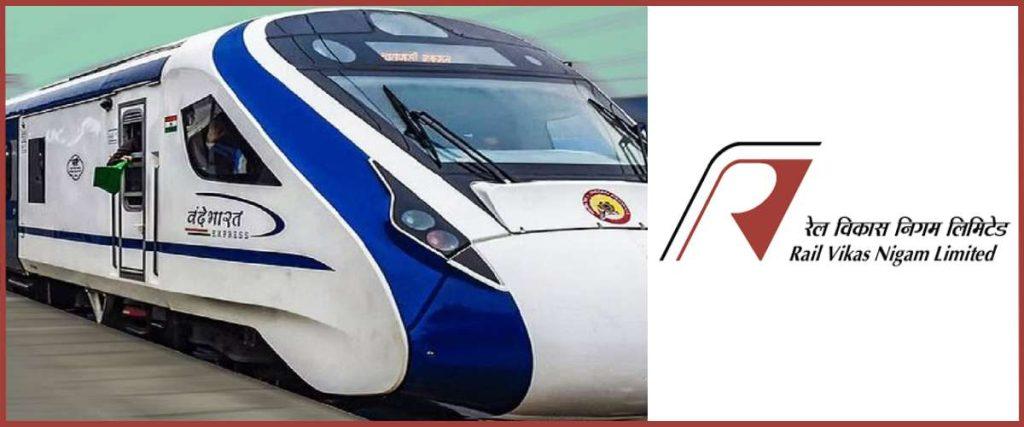In an exclusive interview with Financial Express Online, BG Mallya, the General Manager of Integral Coach Factory (ICF) in Chennai, sheds light on the future of Vande Bharat and the ICF’s plans for lightweight aluminum car trains. Mallya also discusses the upcoming Vande Metro and the government’s target for the manufacturing of coaches. Let’s take a closer look at the details.
Table of Contents
Upgraded version of Vande Bharat to include sleeper version
According to Mallya, an upgraded version of Vande Bharat Express train will be launched this year, featuring a sleeper version suitable for long-distance travel. Currently, only chair cars are available, with a maximum journey length of around eight hours.
Rollout and route of the sleeper version
Mallya states that the sleeper version of Vande Bharat is likely to be rolled out in the current financial year, but the ICF currently has no information on the specific route on which the train will run.
Plans for lightweight aluminum car trains
The ICF is planning to introduce lightweight aluminum car trains in the future, which will improve energy efficiency and reduce power requirements. This will be a first for the ICF, as they have not manufactured aluminum car body trains in the past. The switch to aluminum will also lead to cost and production differences, but the ICF is working to reduce cycle time for faster rollout.
Possibility of Vande Bharat replacing Shatabdi trains
Mallya states that there is a possibility that Vande Bharat may replace the existing Shatabdi trains in the future, as the timings in some places where it has been launched are almost identical to Shatabdi timings. However, it will take time to produce enough Vande Bharat trains to replace all the Shatabdi trains.
Manufacturing target for ICF
The government is planning to ramp up the production of Vande Bharat in the next financial year, with a target to manufacture 46 trains with 16 cars per train, totaling 736 cars.
Features of upcoming Vande Metro
The Vande Metro designs are being finalized, with each coach accommodating around 250 to 300 people. There will be space for standee passengers, and the seating arrangements will provide ample space in the center for standing passengers to hold onto handholds. There will be no need for pantry equipment, but the trains will have toilets, passenger information and public address system (PAS), air conditioning, and automatic doors. The team is hoping to achieve a maximum speed of 130 kilometers.
Plan to make Vande Bharat aluminum trains at 200 kmph
The ICF aims to upgrade its manufacturing capabilities to produce high-speed aluminum-bodied trains, but the timeline for the rollout of these trains has not been announced yet.
Conclusion
BG Mallya of ICF sheds light on the future of Vande Bharat, the ICF’s plans for lightweight aluminum car trains, and the upcoming Vande Metro. With plans to manufacture an upgraded version of Vande Bharat, including a sleeper version, and the aim to produce high-speed aluminum-bodied trains, the ICF is striving to innovate and improve the country’s rail transport system.
BG Mallya: An exclusive interview with Financial Express Online
Is there a plan to produce an improved or premium version of the Vande Bharat?
According to BG Mallya, General Manager of Integral Coach Factory (ICF) in Chennai, there are plans to manufacture an upgraded version of Vande Bharat. Specifically, they will be launching a sleeper version of the train that will be suitable for long-distance travel. Currently, only chair cars are available, with a maximum journey length of around eight hours. The ICF is working on this upgraded version and plans to roll it out sometime this year.
When can we expect the sleeper version of Vande Bharat to be launched?
BG Mallya, General Manager of Integral Coach Factory (ICF) in Chennai, has stated that the sleeper version of Vande Bharat is likely to be rolled out in the current financial year. He believes that there is a demand for luxury travel between cities that are 1000 or 2000 kilometers apart.
On which route it will run?
According to BG Mallya, General Manager of Integral Coach Factory (ICF) in Chennai, the ICF currently has no information about the specific route on which the sleeper version of Vande Bharat will run.
How many tenders have been issued for the sleeper version of Vande Bharat?
According to BG Mallya, General Manager of Integral Coach Factory (ICF) in Chennai, while the Railway Board has opened a tender for the sleeper version of Vande Bharat, the ICF is currently focusing on producing the first sleeper version using the materials from the chair car version. There is no information on the number of tenders that have been launched for the sleeper version of Vande Bharat.
What additional features will be incorporated into Vande Bharat in the coming days?
According to BG Mallya, General Manager of Integral Coach Factory (ICF) in Chennai, the ICF is planning to introduce lightweight aluminum car trains in the future, which will improve energy efficiency and reduce power requirements. The ICF has not manufactured aluminum car body trains in the past, so this will be a first for them. The weight reduction from using aluminum will also lead to a decrease in power needed to run the train at a particular speed on a particular terrain. Currently, the Vande Bharat uses stainless steel, but the switch to aluminum will result in cost and production differences. The ICF is working to reduce cycle time so that the rollout of these new features can be faster. There is already a tender for the aluminum car body Vande Bharat train.
Is there a possibility of Vande Bharat replacing the existing Rajdhani or Shatabdi trains in the near future?
According to BG Mallya, General Manager of Integral Coach Factory (ICF) in Chennai, there is a possibility that Vande Bharat may replace the existing Shatabdi trains in the future. In some places where it has been launched, the timings are almost identical to the Shatabdi timings. However, since it will take time to produce enough Vande Bharat trains to replace all the Shatabdi trains, the Shatabdi trains will be used on other routes. The ICF is working to ensure that no resources go to waste in the process.
What is the production target for Vande Bharat at the Integral Coach Factory, given the government’s aim to increase production in the next financial year?
According to BG Mallya, General Manager of Integral Coach Factory (ICF) in Chennai, the government is planning to ramp up the production of Vande Bharat in the next financial year. The target is to manufacture 46 trains with 16 cars per train, which adds up to a total of 736 cars.
Can you provide details about the new features that will be introduced in Vande Metro?
The Vande Metro designs are being finalized and the team will be discussing the proposal with the Railway Ministry soon. The plan is to freeze the specifications and move ahead with the procurement process within this month. The Vande Metro will have most of the features of Vande Bharat, but will have space for standee passengers as it is designed to replace mainline EMU trains. Each coach will accommodate around 250 to 300 people, with seating arrangements designed to provide a lot of space in the center for standing passengers to hold onto handholds. As a result, there will be no need for pantry equipment. The trains will have toilets, passenger information and public address system (PAS), air conditioning, and automatic doors. The team is hoping to achieve a maximum speed of 130 kilometers, although the final decision will be made in consultation with the Ministry.
Are there any plans to manufacture lightweight aluminum car trains for Vande Bharat that can travel at 200 kmph at ICF?
Yes, there is a plan to make Vande Bharat aluminum trains that can run at 200 kmph at ICF. The aim is to upgrade the manufacturing capabilities of ICF and other coach manufacturing units like MCF and Rail Coach Factory to produce high-speed aluminum-bodied trains. However, the timeline for the rollout of these trains has not been announced yet.
Sources: Financial Express




